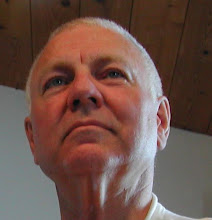A year ago, I travelled South of the USA/Mexico border for the first time in my life. The ultimate tourist cliché: a pudgy, ageing, lily-white male, travelling alone, to Cuba, in February.
With two important exceptions.
I speak fluent Spanish and, most days, my relentless internal dialogue revolves around something more than seething mulata sexcapades.
This year I'm obsessed with understanding the global effect of Compound Interest. No, really.
What better place to concentrate on political economy than the last bastion of anti-imperialist bravura where obesity is anathema and the resultant stunning female population is educated and can actually think?
I don't enjoy large hotels in densely concentrated tourist centres. I tend towards more remote areas, preferably rural. The highlight of my first trip in 2010 was an encounter with Cuba's celebrated health-care system, even in rural areas, described here.
This time, having retired a month ago and travelling alone once again, I'm setting out in search of a compromise location to recommend for family or friends who don't speak Spanish at all and need an occasional shopping spree. I'm looking for something off the beaten track, preferably within reach of Havana, yet culturally and economically light years from the five star strip at Varadero.
After scrubbing the Internet all through the Fall of 2010 and using Google Earth to surf at ground level, I became intrigued by a neighbourhoood of Guanabo. Despite being only forty-five minutes along the coast east of the capital, it looked good from a mile up. Equally isolated from both the capital and the tourist meccas further east it's where Cubans themselves go for holidays in July and August. After reading a few comments from previous tenants, I decided to try Skype-calling one of the local 'casas particulares', the Cuban equivalent of a B&B.
What luck. Extraordinary luck. My first choice just happened to have a two week vacancy exactly when my family might complain a little less while I explored.
Ignoring the 'all inclusives', I booked an independent flight from Montreal and asked the casa operator to meet me at Havana airport this first time because I was arriving at night. I must have had horseshoes and rabbit's feet in my horoscope because, despite the full moon, my bags were among the first to emerge in Havana and customs just waived me through with nary a glance. I had nothing to declare anyway, but was still surprised at the total lack of inspection or delay. I learned later that another flight had arrived concurrently from Miami loaded with Cuban expatriates. Seems they warrant much closer scrutiny.
My host has red hair and I sport a goatee in winter, so we found each other with remarkable ease amidst the cacophony. She'd hired a friend and his 1950s Mercedes-Benz saloon for the hour's drive to the casa, so we picked up her thirteen year old son from her sister's place along the way. My first sensation in the dark was the sound of surf washing. So far so good.
I would be happy in a hovel, but reptiles and airborn beasts of any kind make my family's skin crawl. Inuit are notoriously uncomfortable with insects. They could be a show-stopper. Fortunately, the few I spotted on arrival were from the place being closed up for several days. They were dispatched with ease (a piece of tissue paper and down the toilet), never to reappear. No other problems through the night and my first morning dawned to reveal a spotless apartment in typically modest Cuban style.
My host and her son occupy half of the first floor, while her retired parents live in the other half. They rent the upstairs as two independent apartments, one twice the size of the other. I was in the smaller single bedroom version with kitchenettte, living room and balcony overlooking the sea. The family have lived in this extraordinary location since 1969 and began renting about ten years ago. They have gradually added practical and unostentatious features, including external stairways and private entrances for each apartment.
The surrounding neighbourhood is entirely populated by local families. There isn't a hotel or high-rise for miles and the village itself, including streets and vehicles are raw Cuba. They fully reflect the fifty years of American economic blockade and hostility. It is hard to believe the flow of European and Canadian tourists to Cuba in recent years has passed this area by so completely.
The beach is natural, a contrast to the man made extravagance of Varadero, and was empty throughout my stay but for a few Cubans, mostly fishermen who swim and dive for lobster and other seafood each day for their own sustenance, and a few kids playing beachball after school and on Saturday.
Which pretty much sums up Guanabo idyllic veneer, its surface. (Video and photographic clips to follow.)
What concerns me more, however, is the story beneath the surface. The burgeoning, bubbling, irrepressible energy about to awaken in Cuba that could transform this area and perhaps even the whole country in a matter of years, or months.
Might the Arabian Spring of February-March 2011 link to a Bolivarian Blowoff in 2015 or 2020? Was former Brazilian President Lula da Silva just a precursor to the ethical leadership emerging in the Americas?
There are extraordinary lessons to be learned on this island. Oblivious to the obscene, but obvious to the observant, the facts are so far removed from the inexorable bullshit fed to us by the cabal of North American conglomerate media.
(to be continued)
